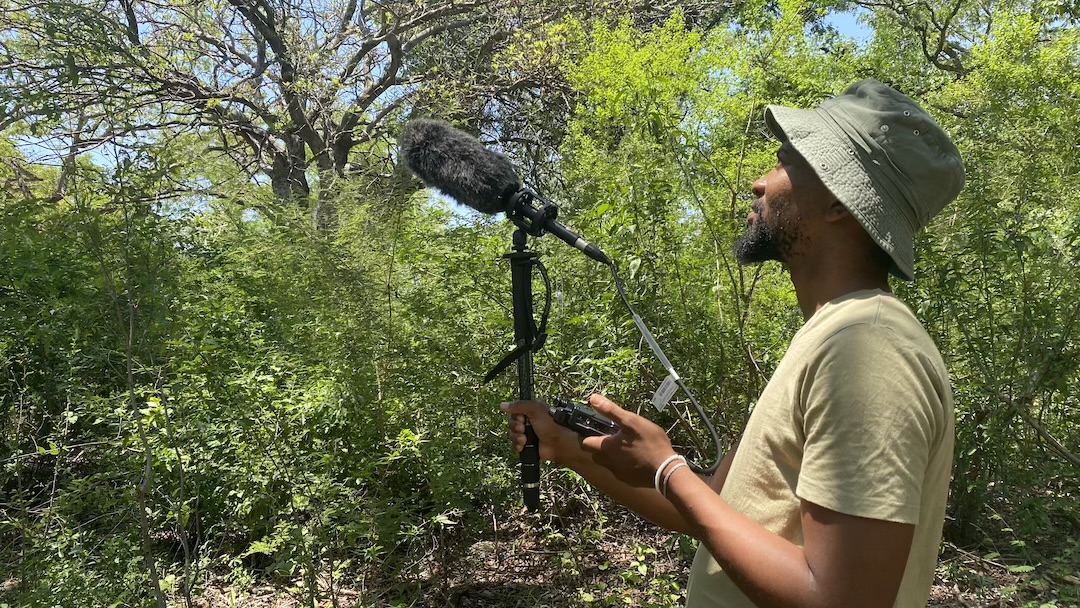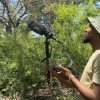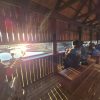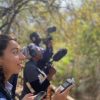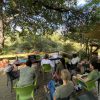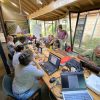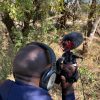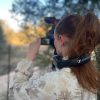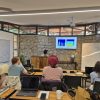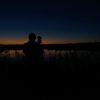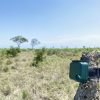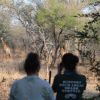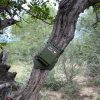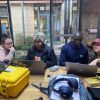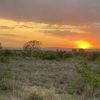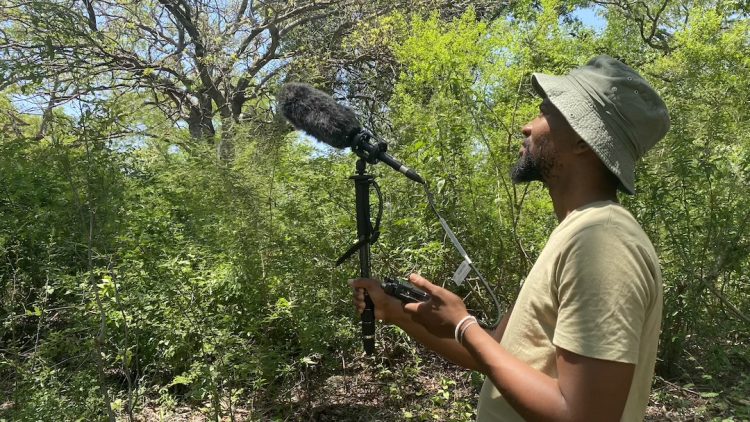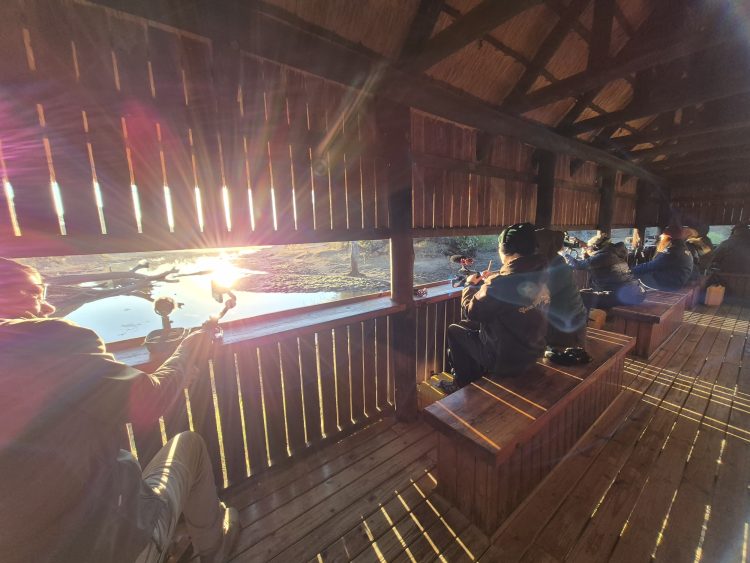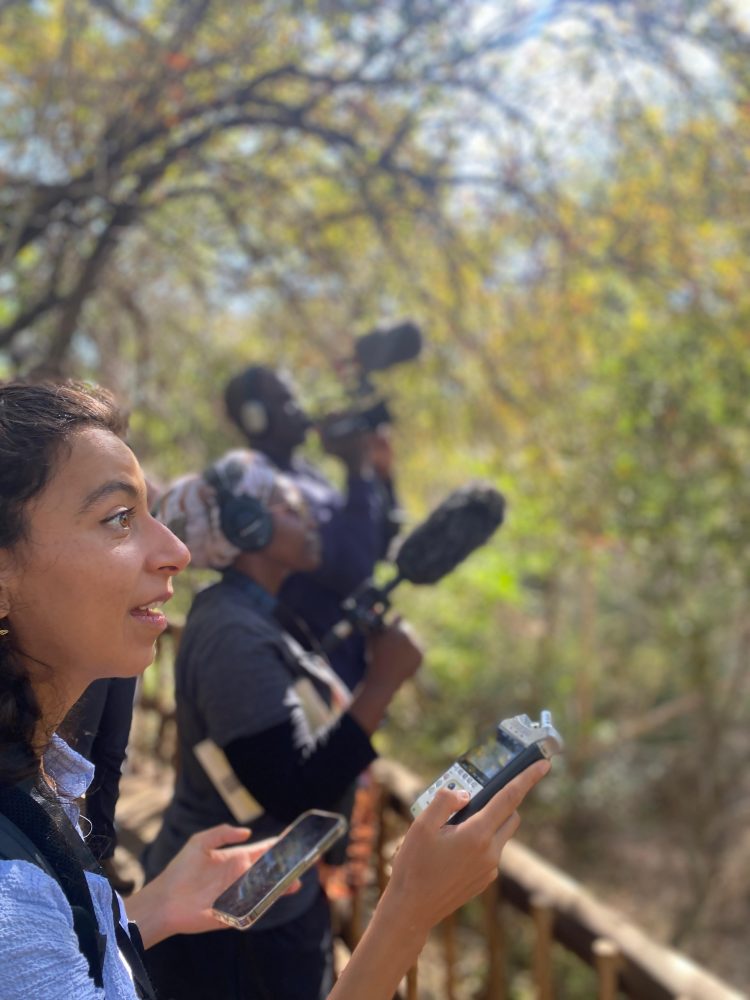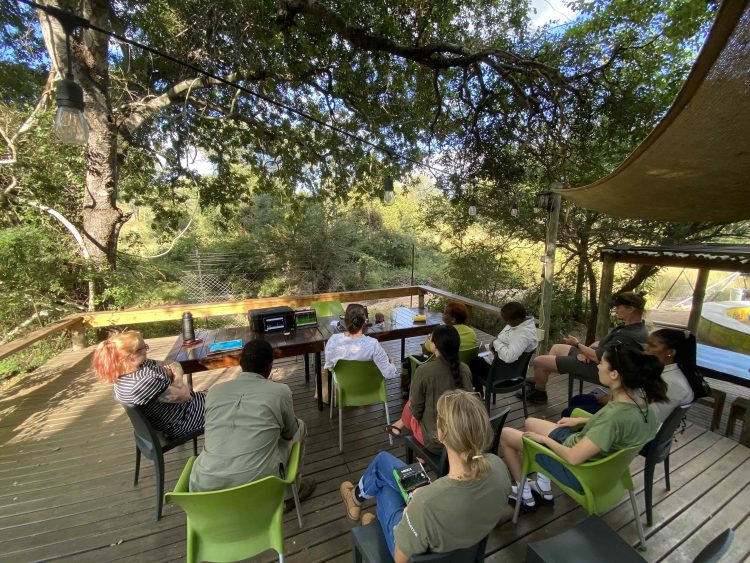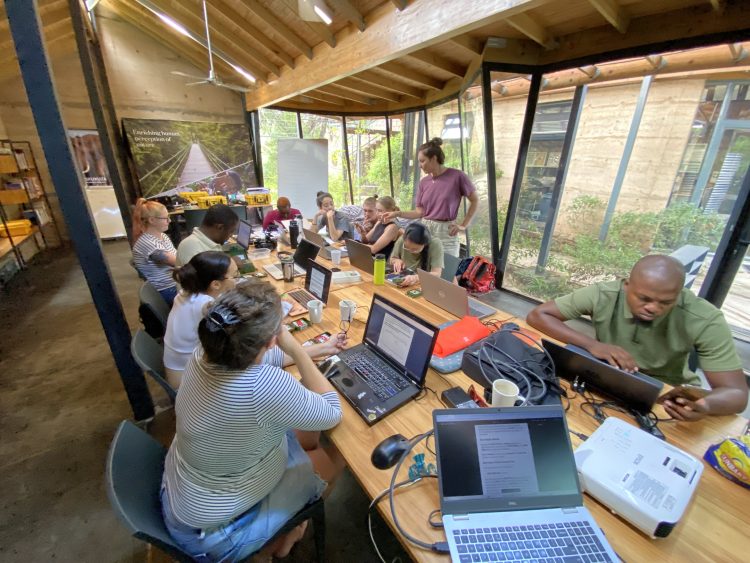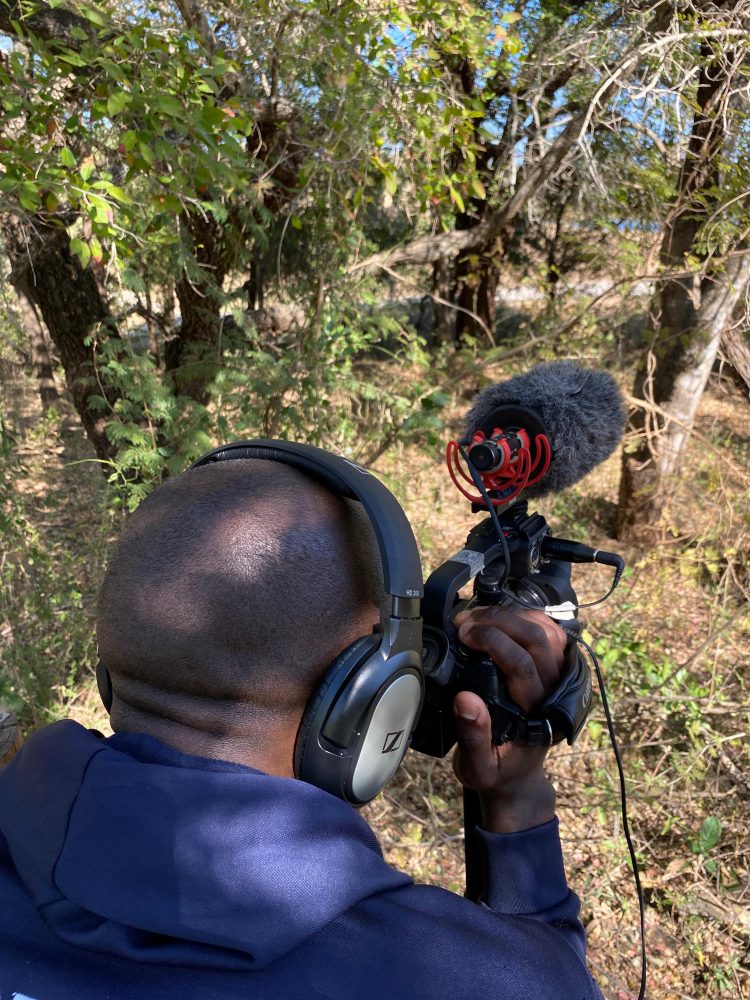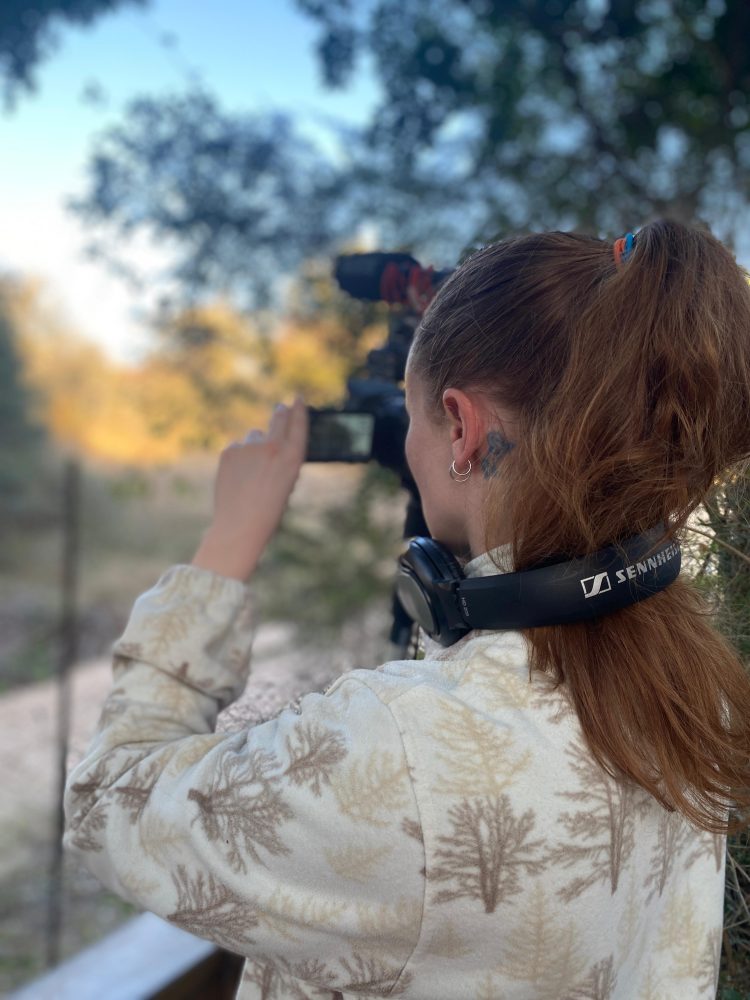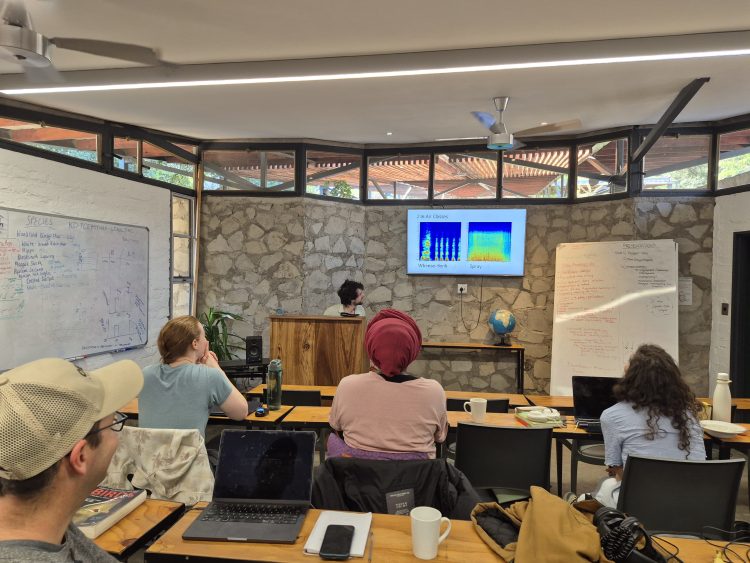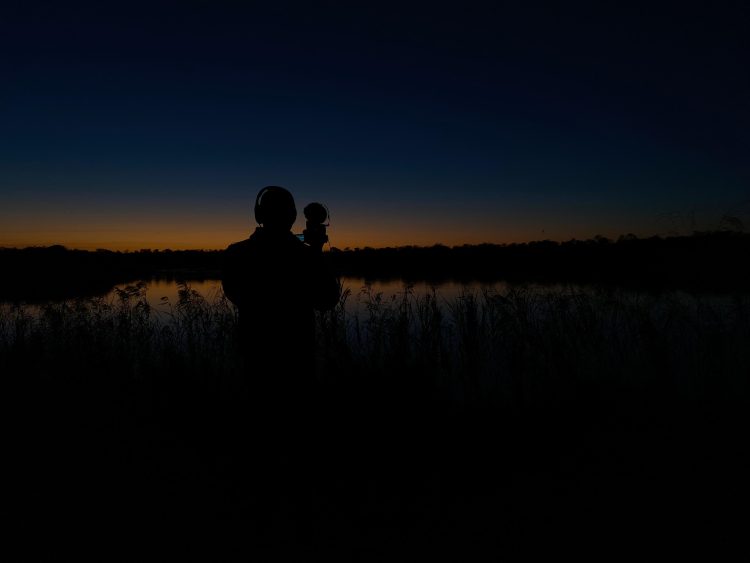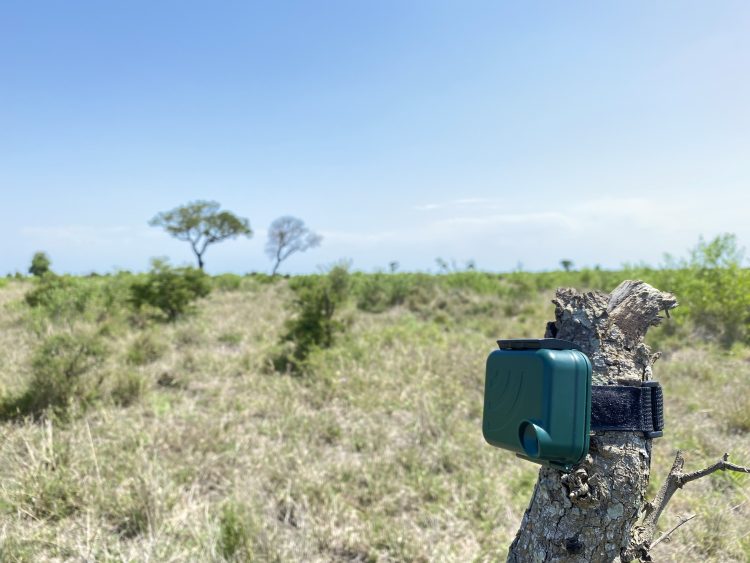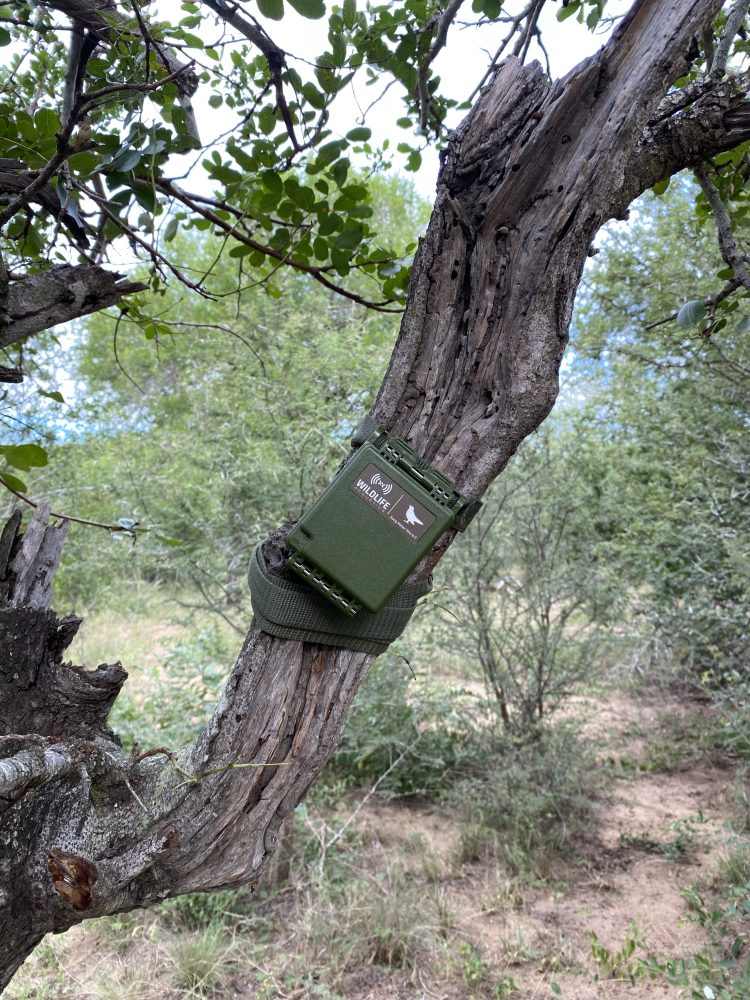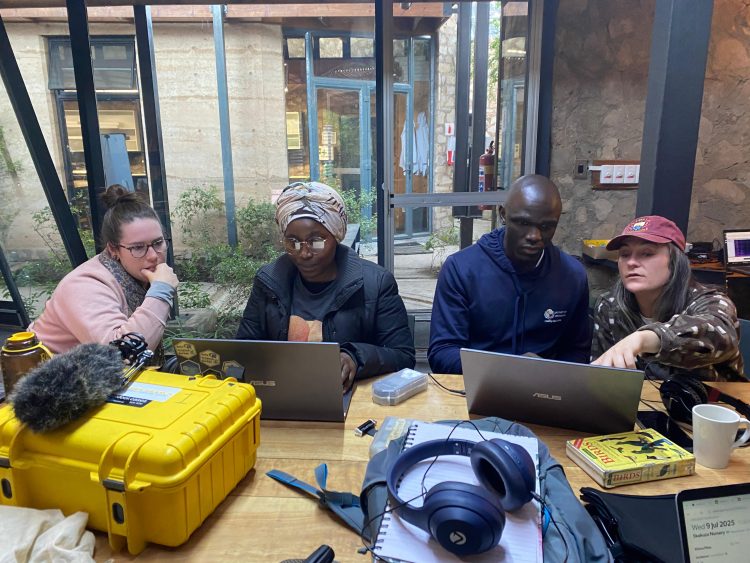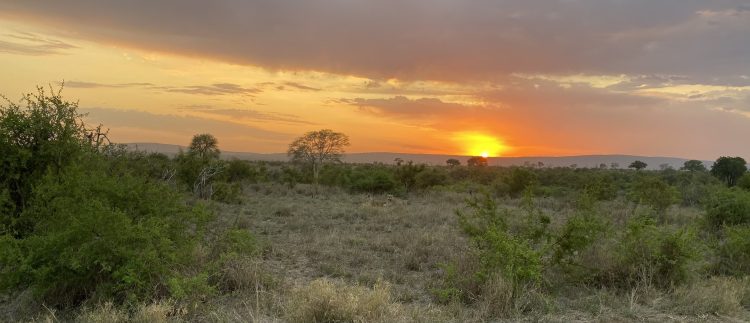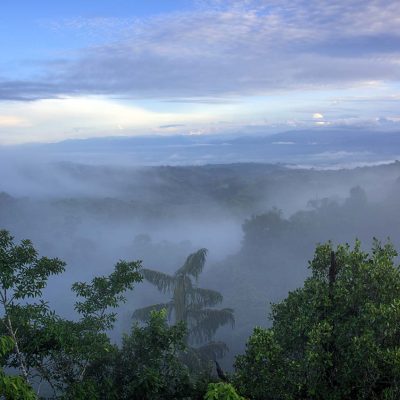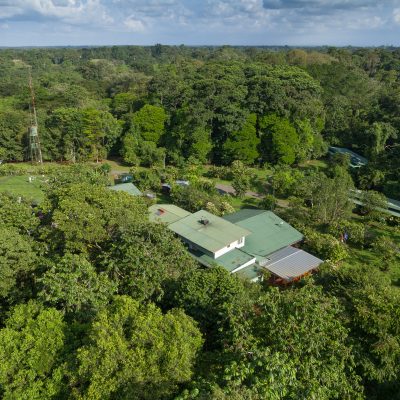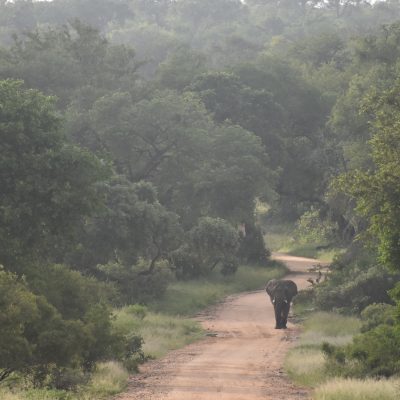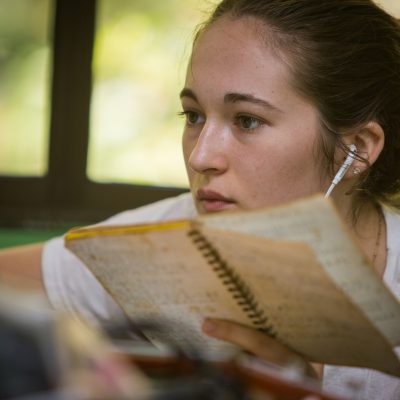This hands-on course provides an exploration of bioacoustics within terrestrial ecosystems, providing participants with the essential skills and knowledge to apply acoustic methodologies in ecological research and conservation efforts. Tailored toward graduate students, researchers and conservation practitioners, the two-week course covers both theoretical foundations and practical techniques necessary for field recording, sound-based biodiversity monitoring and ecosystem assessment in biodiverse terrestrial systems.
Through lectures, workshops, and field exercises, participants will learn to apply bioacoustic techniques in environmental research. By the end of the course, you will be proficient in collecting, analysing, and utilising acoustic data to address key conservation challenges. Special emphasis will be placed on practical, real-world applications in Africa’s rich ecosystems.
Key topics include:
- Fundamentals of Bioacoustics: Explore how animals use sound for communication, navigation, and reproduction, and how these signals can be leveraged to assess behaviour, community composition, and ecosystem health.
- Recording Techniques and Research Design: Gain hands-on experience with acoustic recording technologies, from focusing on individual species to capturing broad soundscapes.
- Acoustic analysis: Learn to analyse acoustic data, from identifying and measuring animal calls to assessing entire soundscapes. Practical sessions will focus on using tools such as Raven for sound measurements, BirdNET for species recognition, and Kaleidoscope for ecoacoustic analysis. Field data collected in the park will be integral to these exercises.
Curriculum
Week 1: Foundations and Field Recording Techniques
Week 1 introduces the core principles of bioacoustics and builds essential field recording skills. Through a mix of lectures and hands-on sessions, participants explore how sound functions in terrestrial ecosystems and gain practical experience using wildlife recording equipment.
Key Topics:
- Bioacoustic Principles: Sound physics, signal properties, and the functions of sound in biology.
- Wildlife Recording Techniques: Equipment setup, recording techniques and call libraries
- Acoustic Data Organization and Visualization: Managing acoustics datasets, visualizing recordings, signal extraction
Hands-On Activities:
- Equipment setup and familiarization
- Field sessions targeting focal species recordings
- Processing and visualizing acoustic data using tools such as Raven Pro
Week 2: Bioacoustics in Conservation Management
Week 2 focuses on applied bioacoustics and its role in conservation. Participants explore ecoacoustics, passive acoustic monitoring, and machine learning approaches, with practical sessions centered on real datasets and species classification. The week concludes with a group project that connects course concepts to conservation challenges, particularly within the African context.
Key Topics:
- Ecoacoustics and Acoustic Indices: Soundscapes as tools for assessing biodiversity and monitoring ecosystem change.
- Machine Learning for Bioacoustics: Automated detection and species classification using programs such as BirdNET.
- Conservation Applications: Designing bioacoustic studies, scaling methodologies, and integrating acoustic monitoring into management plans.
Hands-On Activities:
- Visualizing soundscapes and analyzing sound data with Raven Pro, Kaleidoscope and BirdNET
- Developing species classifiers and exploring microphone array triangulation
- Group project development, applying bioacoustics to conservation case studies
Learning Objectives
By the end of the course, participants will:
- Understand bioacoustic principles and their practical applications in terrestrial ecosystems, with a focus on conservation and applied ecological research.
- Develop practical skills in acoustic field recording and deploying long-term passive acoustic monitoring (PAM) devices
- Gain proficiency in bioacoustic data management and analysis, using tools like Raven, BirdNET and Kalaeidoscope
- Design and implement bioacoustic research studies, considering logistical, financial, and methodological factors
Course Credits
Participants who successfully complete the course requirements will receive a Certificate of Completion
A background in the biological sciences is recommended as it will make it easier to engage with the examples and case studies presented throughout the course. However, this is not a strict requirement, and we welcome applicants from a wide range of academic and professional backgrounds.
Participants should have an interest in conservation, ecology, or related fields, and be comfortable participating in outdoor fieldwork and basic data analysis. No prior experience in bioacoustics is required.
Once accepted, registered participants will receive guidance on how to prepare for the course, including suggested readings, software requirements , and recommendations to help you get the most out of the training.
Course Dates
10 May 2026 (Sunday) – 23 May 2026 (Saturday)
Arrival Information
Participants should plan to arrive in Johannesburg or directly in Skukuza on the morning of the course start date.
Confirmed applicants will receive detailed travel guidance, including recommended flight options, airport meeting points, ground transportation arrangements to Skukuza Research Station and guidance for those arriving before the course start date.
Departure Information
The course concludes on after breakfast on the final day.
Participants may book:
- Morning or early afternoon flights from Skukuza Airport (SKZ), or
- Afternoon (after 3pm) or evening departures from OR Tambo International Airport (Johannesburg)
Additional guidance on recommended departure times and transfer logistics will be provided to all confirmed participants.
Daily Schedule Overview
Most days on the course follow a similar rhythm:
- Early morning: Field recording sessions
- Mid-morning: Lectures or data workshops
- Afternoon: Practical exercises and group work
- Evening: Downtime or informal discussions
Week-at-a-Glance
For more detail on topics covered, please refer to the Curriculum section.
Tuition
Standard Tuition – US $2,300
For participants from countries outside Africa.
African Students – US $1,600
For participants who hold citizenship in any African country.
OTS Member Institutions – US $2,100
For participants enrolled at or formally affiliated with an OTS member institution.
What’s included
- All course materials, lectures, workshops, and field sessions
- On-site support and mentorship from course instructors
- Accommodation at the SSLI Campus in Skukuza (13 nights, shared)
- All meals for the duration of the course
- Transportation for all course-related activities within Kruger National Park
- Access to required acoustic recording equipment for hands-on training
Scholarships
A limited number of partial scholarships are available for participants with demonstrated financial need. To be considered, please include a brief scholarship motivation in your application.
Scholarship eligibility is assessed individually and only after applicants have been accepted into the course.
Additional Costs to Plan For
To help you prepare, please budget for travel-related expenses that are not included in the tuition:
- International or domestic flights to Johannesburg (OR Tambo International Airport or Skukuza Airport)
- Overnight accommodation or meals needed during transit
- Visa or travel insurance fees
- Personal expenses
Course Team
This course is offered in collaboration between the African Bioacoustics Community (ABC) and the Organization for Tropical Studies (OTS). Our coordinators and instructors include experienced researchers and practitioners who bring extensive expertise in bioacoustics, ecology, conservation science, and field-based training.
Tess Gridley, Ph.D.
Tess Gridley is a bioacoustician and conservation scientist working in Southern Africa, with research spanning seals, cetaceans, and birds. Her work has produced multiple first accounts of species’ acoustic signals and their functions. As the founder of the African Bioacoustics Community (ABC), she actively promotes the growth of bioacoustics across the continent.
Dr. Gridley has experience leading acoustic and visual surveys to address key conservation questions, including population abundance, distribution, habitat use, and genetics. Her research outputs feed directly into specialist reports for Environmental Impact Assessments, contributing to environmental management strategies. She also serves on global initiatives such as the International Quiet Ocean Experiment (IQOE) and the Global Library for Underwater Biological Sounds (GLUBS).
Simon Elwen, Ph.D.
Born and raised in South Africa, I’ve always loved both the sea and animals. After graduating as a biologist, I have had the privilege to travel and work in several other countries including the UK and Gabon. Most of my work since my PhD has been in Namibia running the Namibian Dolphin Project, where I’ve been focussing on Heaviside’s and bottlenose dolphin ecology. More recently, I have moved back to Cape Town to setup Sea Search as a base of operations to make it easier expand my research within South Africa.
Although I’m interested in all aspects of the ocean, I’m particularly interested in the environmental conditions can affect acoustic behaviour. This is an important line of research these days, particularly in the context of growing human impacts on marine and terrestrial ecosystems.
Sasha Dines Ph.D.
Sasha Dines is a marine biologist specializing in the acoustic behavior of endangered marine mammals. Her PhD research focused on the acoustic repertoire of humpback dolphins, investigating signature whistles and their potential for use in acoustic mark-recapture studies.
Sasha has extensive field experience, having served as Head Field Specialist at Oceans Research in Mossel Bay, South Africa, where she managed marine research internships and contributed to marine mammal conservation initiatives. She currently coordinates the SouSA Consortium in South Africa and leads the Threats Group within the HudoNET network, which facilitates collaborative research across the humpback dolphin’s range.
Donovan Tye, MSc
Donovan Tye is an ecologist specializing in savanna ecology and conservation technology. He serves as the Director of Conservation Technology for the Organization for Tropical Studies (OTS) and Field Station Director at the Skukuza Research Station in Kruger National Park. His work focuses on integrating acoustic monitoring and emerging technologies into long-term biodiversity monitoring and research programs across Southern Africa.
The course will take place at the OTS Skukuza Research Station, located in the southern region of Kruger National Park, South Africa.
Accommodation:
Participants will stay in shared group accommodation, with 2–4 people per room. The facilities are clean and comfortable, offering a communal living environment ideal for field-based courses.
Meals:
All meals are included and will be provided at the research station, with three meals served daily. The menu is designed to cater to a variety of dietary needs, and participants will have access to nutritious and hearty meals throughout the course.
Non-SA citizens should immediately contact their regional South African Consulate to determine passport and visa requirements. Should you need proof of program participation, please contact us as soon as possible.
If you are a US citizen, you will receive a 90-day tourist visa upon entry to the country. If you plan to enter South Africa before the course officially begins or extend your stay after the program ends for a total time in South Africa of longer than 90 days, you must contact your regional South African Consulate to apply for a Visitor’s Visa.

